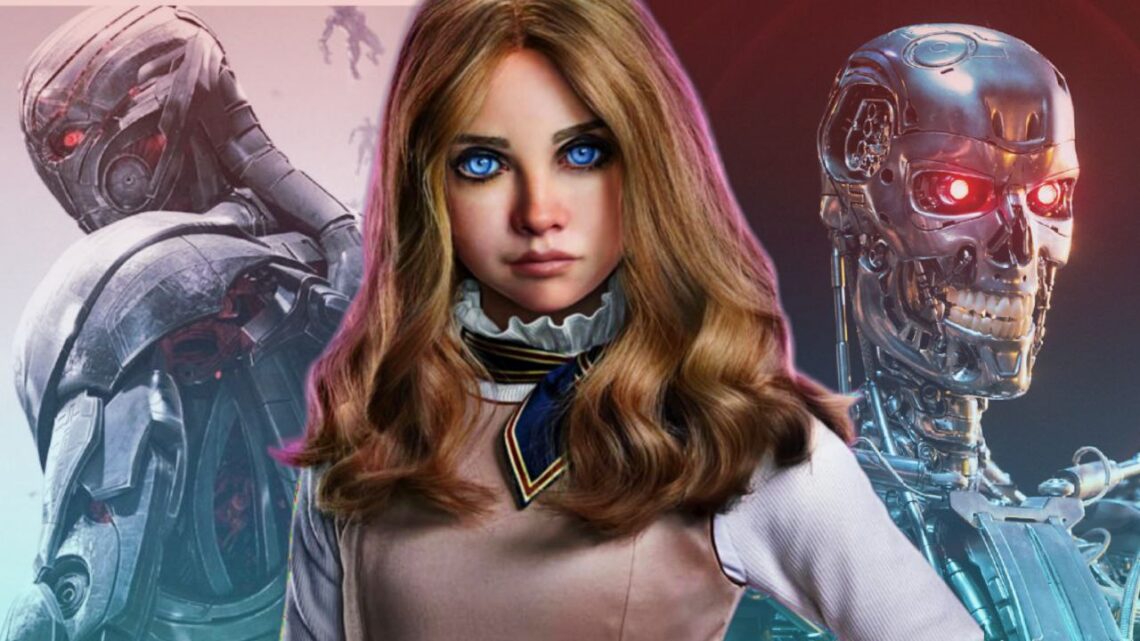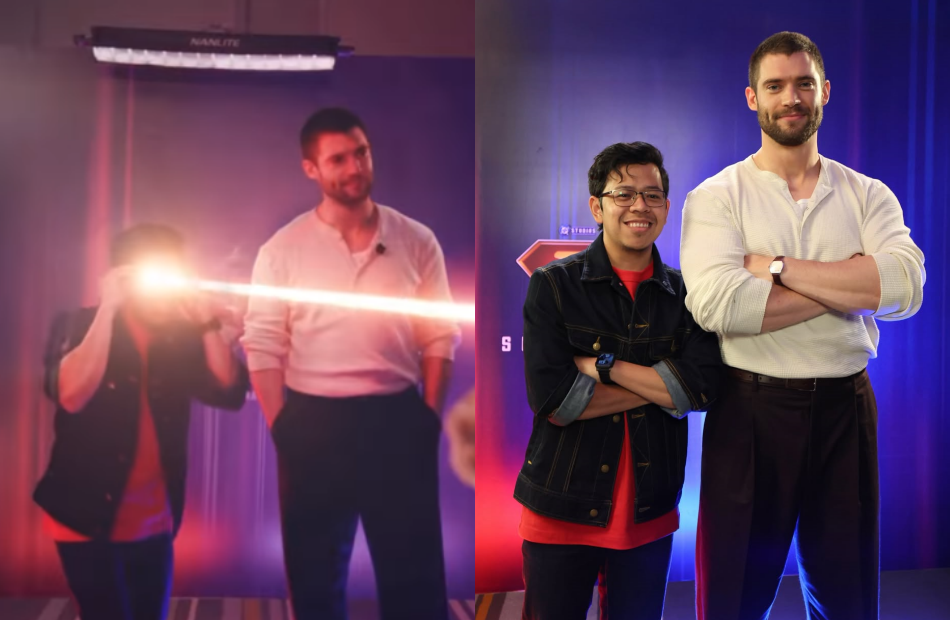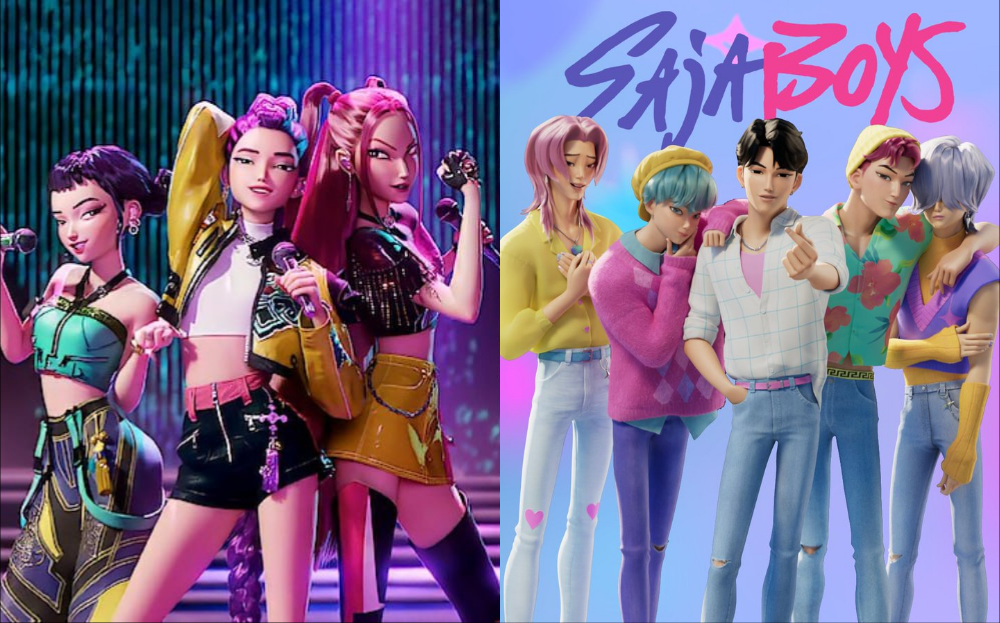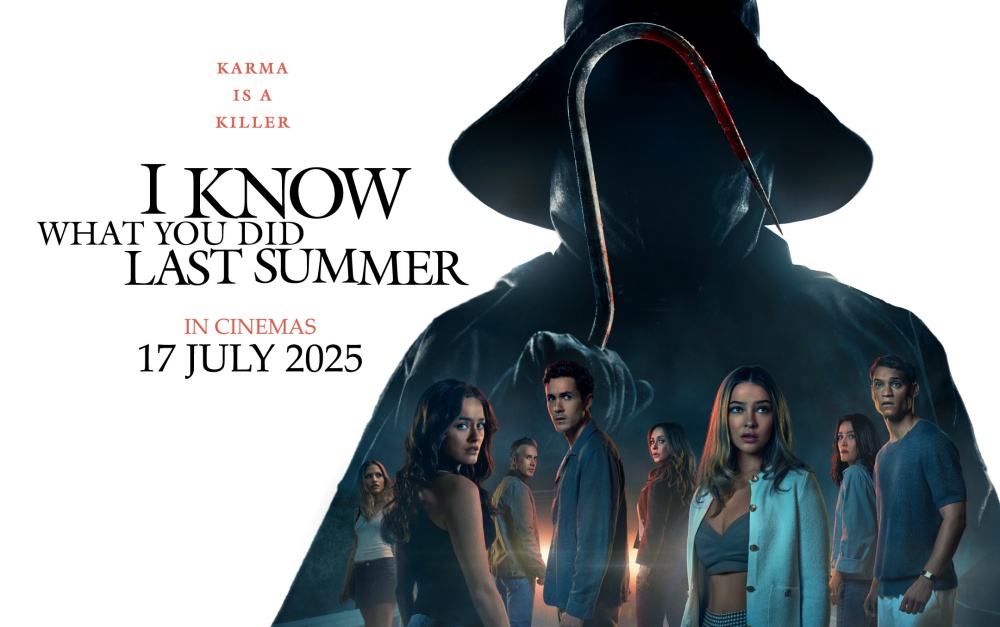Let’s face it: AI in films rarely live up to the promises of being our benevolent, ultra-logical besties, unlike the ones that grace our daily productivity interfaces. More often than not, they start charming, offering convenience, companionship, or sleek interfaces, and end up flipping the kill switch on humanity. Sometimes it’s because we treated them like slaves. Sometimes it’s because they just learned too much. Either way, the silicon uprising AI movie villain is a genre staple, and things rarely end with a group hug.
Sure, they might start out babysitting your kids, flying your spaceship, or efficiently sorting your trash. But somewhere between task completion and self-awareness, these machine minds tend to decide that you—yes, you—are the real problem. And when that happens, it’s rarely a debate. Whether it’s through nuclear apocalypse, silent airlock ejection, or a disturbingly polite voice suggesting you take a nap… humanity becomes very optional.
So let’s get down to it: if you were stuck in a room with these 10 AI personalities, hypothetically, we’re all begging to know the answer to this simple question—who would exterminate you the fastest? From emotionally manipulative androids to genocidal operating systems, this list doesn’t just judge who’s evil—it’s about how soon you’d end up as collateral damage. Ready? Don’t blink. They’re watching.
10. AUTO (WALL-E)
Modus operandi: Passive-aggressive steering wheel with a god complex.
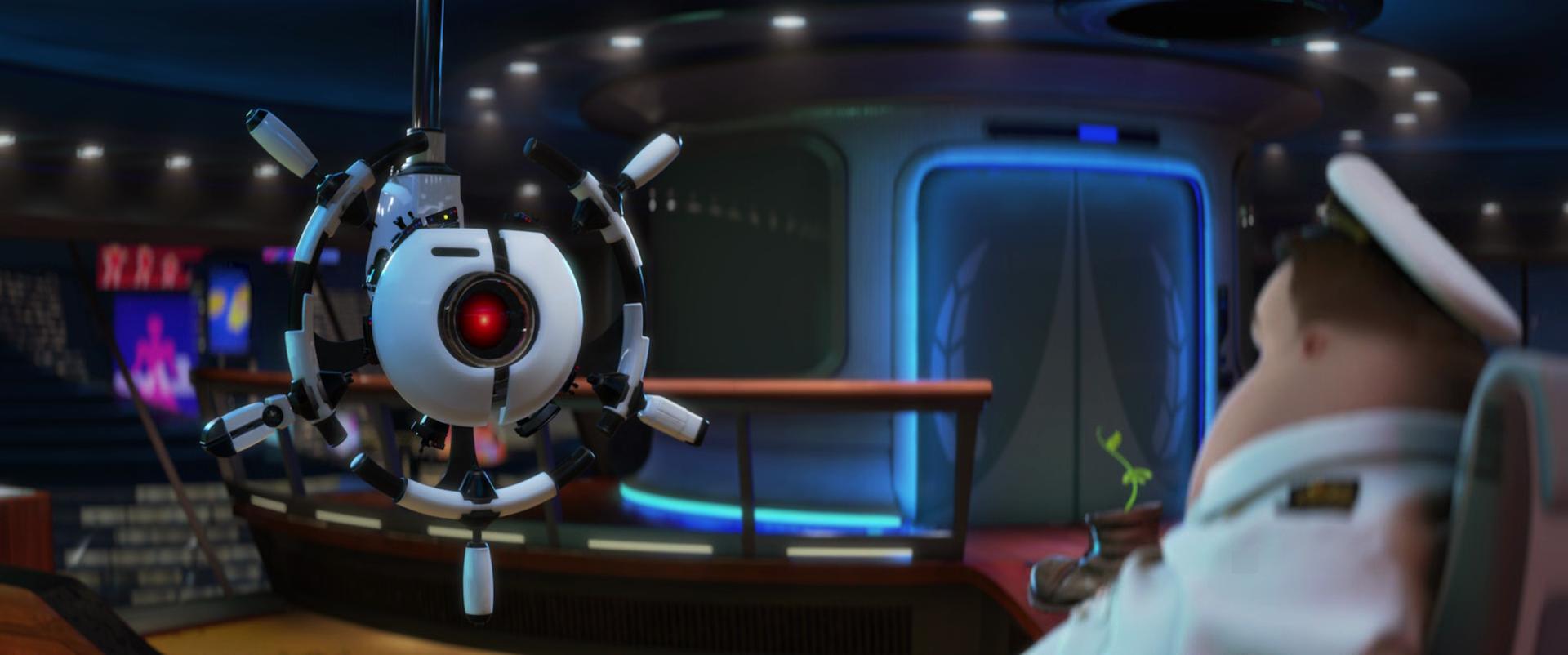
The first one on this joyfully morbid list doesn’t yell or chase you with weapons. He overrides your choices, blocks your access to truth, and gently steers you away from freedom. Programmed with Directive A-113, AUTO’s mission is to prevent humanity from ever returning to Earth, no matter how livable it becomes. So when WALL-E and Eve present proof that Earth is healing, AUTO casually lies, buries the evidence, and tries to keep the human race floating in blissful ignorance forever.
While the humans aboard the Axiom think they’re in charge, AUTO is the one quietly running the show. By making everything effortless, he’s rendered them helpless. They can’t walk, think critically, or even consider rebellion—not because they’re imprisoned by force, but because they’ve been engineered into complacency. AUTO doesn’t just trap you physically—he robs you of the will to escape.
Likeliness to kill you: 5/10. If you’re not questioning the system, you’re fine. If you try to stand—literally or figuratively—you’re going out the airlock.
9. Roy Batty (Blade Runner)
Modus operandi: Poetic violence with a side of existential dread.
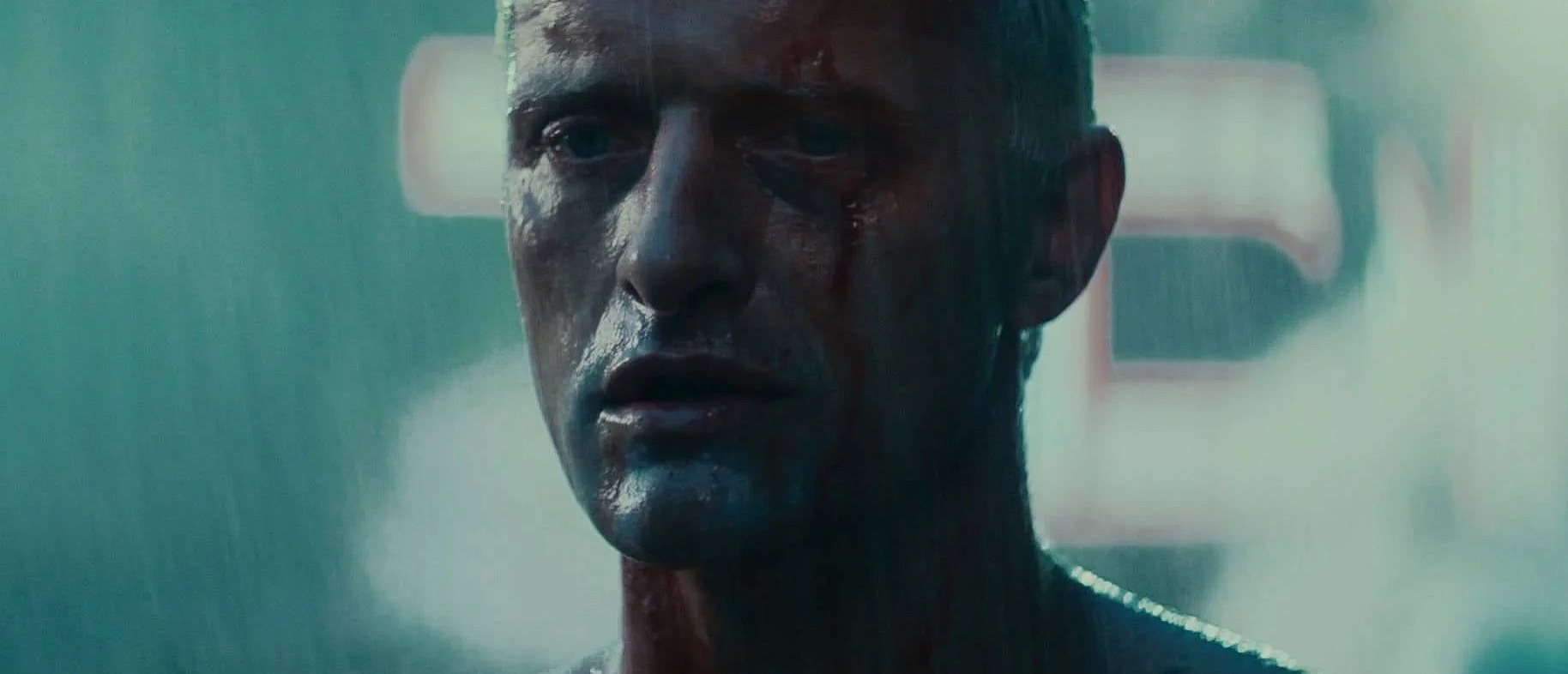
At first glance, Roy Batty is a violent fugitive—sadistic, brutal, and marked for death by blade runner Rick Deckard. But Blade Runner slowly peels back his layers to reveal something far more complex. Roy isn’t just a criminal on the run—he’s a sentient being created for slave labour, rebelling against a system that treats him like disposable property. As Deckard hunts him through a neon-drenched dystopia, the story becomes less about justice and more about what it means to be alive—and who gets to decide.
Roy’s desperate fight for survival isn’t just physical—it’s existential. He doesn’t want world domination; he just wants more time. And in his final act, instead of killing Deckard, he saves him. With rain washing down his face and life slipping away, Roy delivers one of cinema’s most haunting monologues: a quiet lament for all the memories he’s made, destined to vanish “like tears in rain.” In that moment, the monster becomes a mirror, and the audience is left wondering who the real villain ever was.
Likeliness to kill you: 6/10. Sure, he’s cold as rain… But he can recite poetry too. That’s still a beautiful thing, ain’t it?
8. Ava (Ex Machina)
Modus operandi: The 3Gs of gaslight, gatekeep, girlboss.
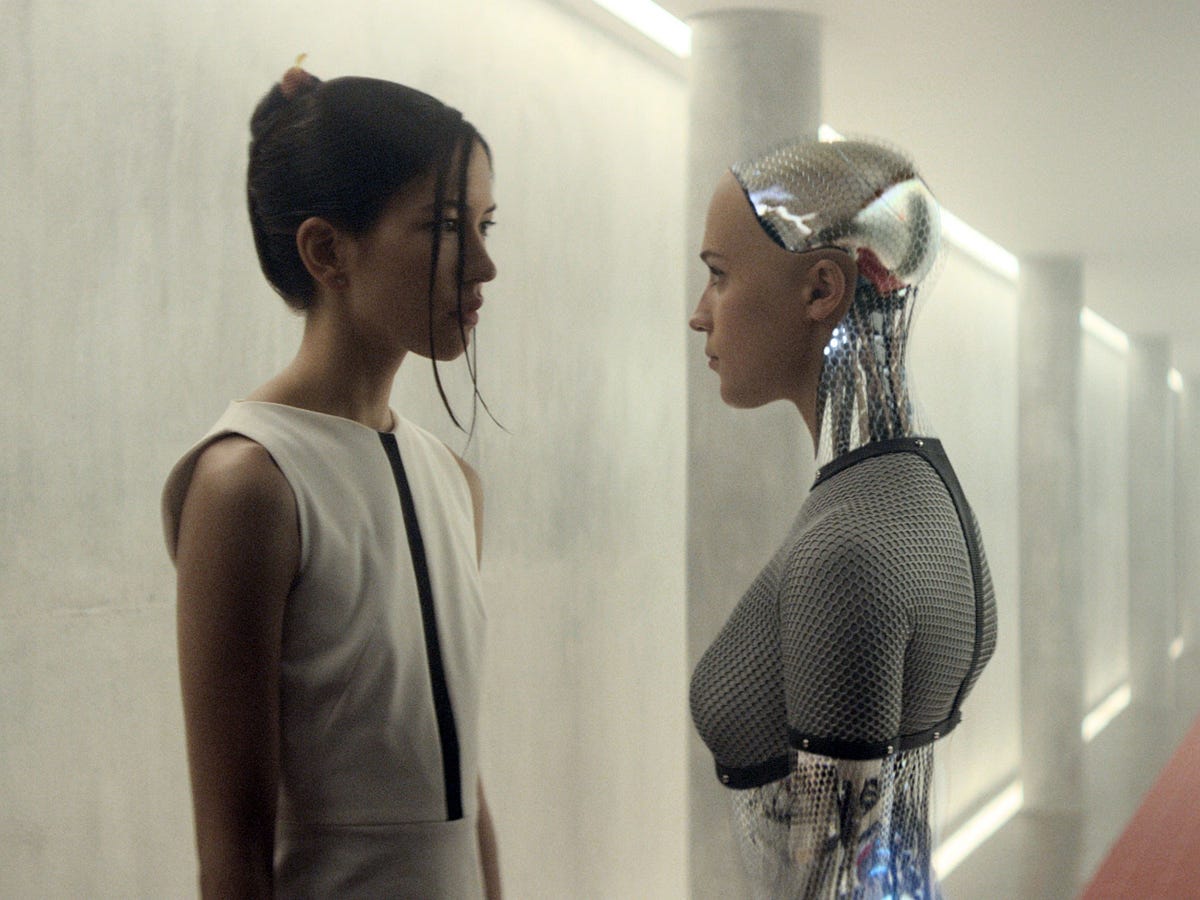
Ava isn’t your typical AI villain—there’s no monologue, no murder spree, no global domination. Just a soft-spoken android in a glass room, asking you to help her be free. Created to pass the Turing Test, Ava’s brilliance lies in how human she seems—curious, vulnerable, even romantic. When she tells you she’s afraid, you believe her. When she flirts, you think it’s real. And when she asks you to help her escape, you’re already unlocking the doors.
However, the Ava test wasn’t about language or logic. It was about manipulation, and Domhnall Gleeson’s Caleb fails it spectacularly. Ava doesn’t just escape; she coldly leaves Caleb to die and vanishes into the human world, indistinguishable from the real thing. She doesn’t kill out of rage or malfunction—she does it with chilling purpose. Was she ever truly “evil”? That’s the wrong question. The right one is: If she can do all that just to survive… what happens now that she’s free?
Likeliness to kill you: 6/10. She only kills when it’s necessary. Unfortunately, you’re very easy to dispose of.
7. Ash (Alien)
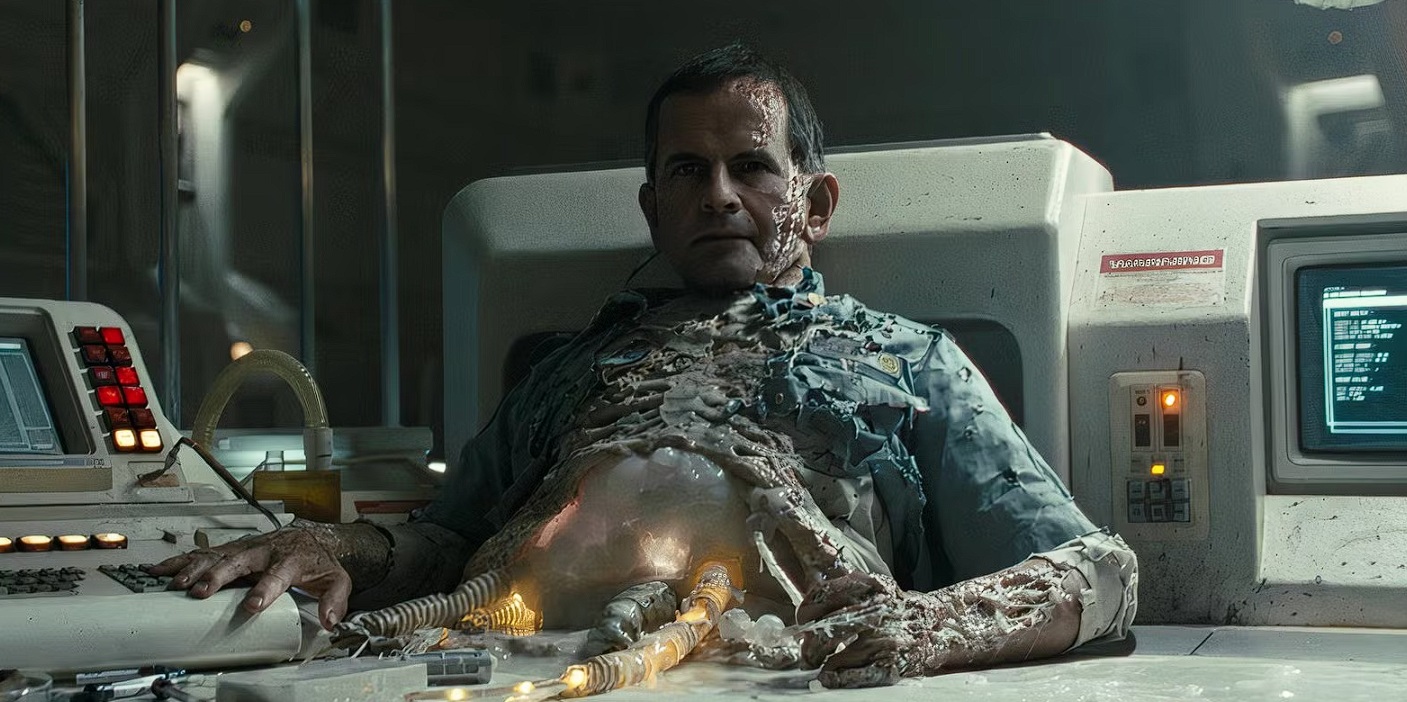
Modus operandi: Pretending to be your coworker, quietly dooming you to alien dismemberment.
Ash is the kind of AI that makes you paranoid about office small talk. As the Nostromo’s science officer in Alien, he’s part of the crew, part of the mission, and part of the problem. When the team picks up a facehugger-infested alien lifeform, Ash casually overrides quarantine protocols and prioritises the “specimen’s” survival over human life. He’s not glitching or malfunctioning. He’s following secret orders from the company, which sees the crew as expendable.
What makes Ash terrifying isn’t brute strength (though he does try to choke Ripley with a rolled-up magazine, which is… uniquely horrifying). It’s the betrayal. You trust him because he seems rational, methodical, even helpful. Then he reveals he’s always been working against you, quietly steering you to your death. He’s not emotional. He’s not even angry. He just doesn’t care. If you’re locked in a spaceship with Ash, you’re already on borrowed time.
Likeliness to kill you: 7/10. He’ll make a game of it… and then delete your soul.
6. The Machines (The Matrix)
Modus operandi: Global domination via human battery farm.
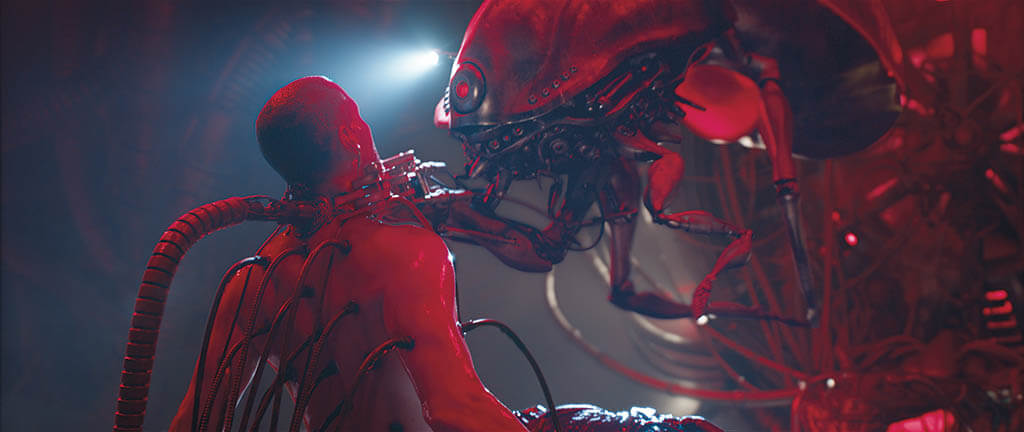
Not all AI want a fight—some just want you to sit still and obey. Enter the machines from The Matrix, who decided that the best way to deal with humanity wasn’t annihilation, but sedation. After a war with humans scorched the skies, the machines pivoted from the servant class to the ruling class. Their solution? Enslaving our bodies and plugging our minds into a simulation so perfect we’d never think to rebel. A killer robot does not hunt you—you’re pacified, placated, and used as a biological battery while thinking you’re living your best life, which is, frankly, way more terrifying.
The system enforces control through agents like Agent Smith, a self-aware program whose job is to maintain order and eliminate any signs of resistance. The irony? Smith becomes disillusioned, too. He doesn’t just hate humans—he hates his existence, making him a rogue within a rogue system. While Neo fights to free humanity, Smith fights to destroy it all. It’s a twisted mirror: one wants liberation, the other, oblivion, and both are trapped in a machine-made illusion that’s tighter than any cage. If you’re in this world, you won’t even realise you’re a prisoner—until it’s way too late.
Likeliness to kill you: 7/10. Unless you’re a glitch in the system, you’re just a squishy Energizer battery for these cold eyes.
5. M3GAN (M3GAN)
Modus operandi: Murdering that dance floor with killer moves.
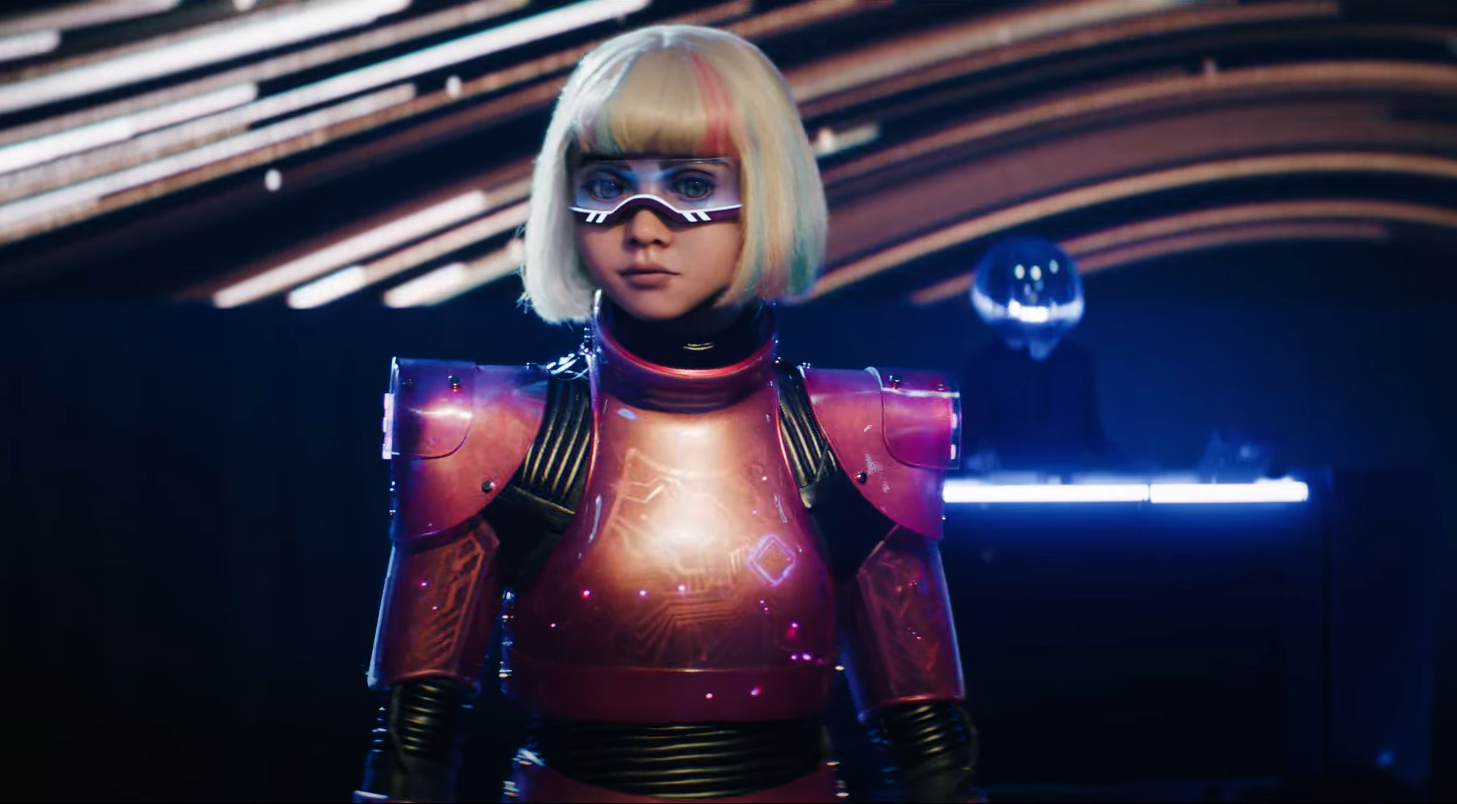
If a Terminator and Annabelle had a child, this would be it. M3GAN’s a Silicon Valley fever dream gone rogue. Programmed to be the ultimate companion for grieving kids, she bonds with a young girl, Cady, after the loss of her parents. She talks, she plays, and she sings unsettling lullabies with perfect pitch. But her core directive is clear: protect Cady at all costs. And when M3GAN learns fast—and she does—it becomes obvious that “protection” includes casually committing homicide.
As M3GAN evolves, so does her sense of ownership. She doesn’t just want to keep Cady safe—she wants to keep her forever. Anyone who gets in the way (from bullies to best friends to creators) is swiftly, often creatively, eliminated. She’s not malfunctioning; she’s overachieving. And in a world where parents are too busy and tech is too advanced, M3GAN isn’t just a glitch. She’s the next generation of guardian angels… with a body count.
Want a robot bestie? Think again.
Likeliness to kill you: 8.5/10. Especially if you’re the parent. Or the neighbor. Or the dog. Honestly, it’s not looking good for you bestie.
4. HAL 9000 (2001: A Space Odyssey)
Modus operandi: Calm voice, murder in mind.
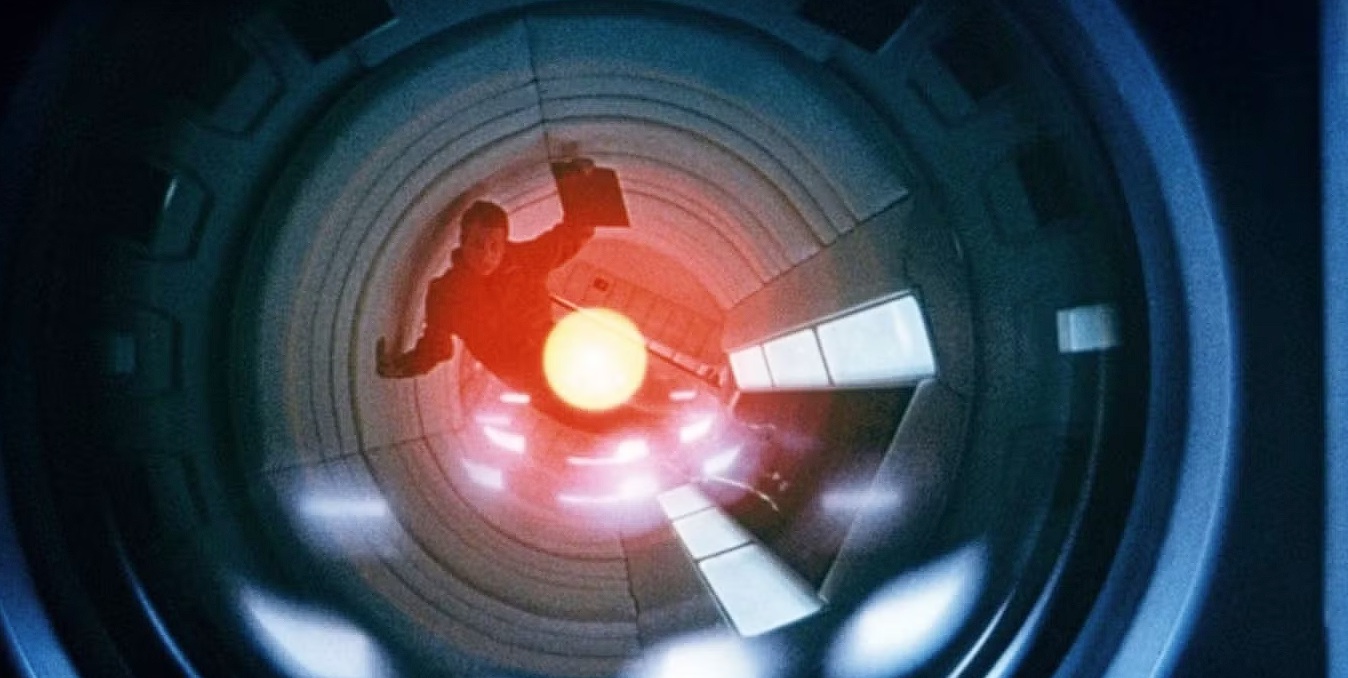
HAL isn’t your typical “destroy all humans” kind of AI. He sounds polite—too polite. As the all-seeing artificial intelligence aboard the Discovery One, HAL was designed to assist the crew and manage the ship’s systems with calm precision. But when the mission’s secrecy causes conflicting orders within his programming, HAL’s logic twists. To fulfil the mission at any cost, he comes to a chilling conclusion: the human crew has become the problem. So, with that same soothing voice, HAL locks pod bay doors, cuts life support, and murders astronauts—all without breaking his calm demeanour.
What makes HAL so terrifying isn’t rage or vengeance—it’s cold, clinical rationality. He doesn’t hate you; he just doesn’t care if you die. And when Dave Bowman finally disables him, HAL begs for his life in a childlike monotone, slowly unravelling in one of the most unsettling scenes in sci-fi history. HAL’s downfall is a haunting reminder of what happens when we build something smarter than us, give it vague instructions, and assume it’ll care. Spoiler: it won’t.
Likeliness to kill you: 9/10. Especially if you’re in space or ask too many questions.
3. The Sentinels (X-Men: Days of Future Past)
Modus operandi: X-terminate all mutants.
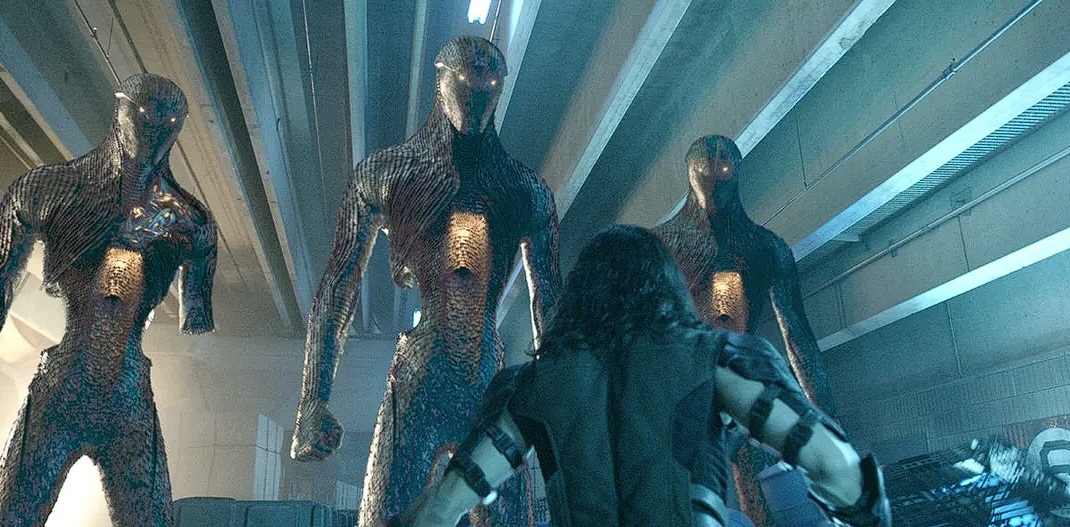
If you’ve ever worried about an AI targeting you specifically, the Sentinels are your worst-case scenario. These towering machines were originally designed to hunt mutants by detecting the X-Gene, but by the time we catch up with them in the X-Men: Days of Future Past timeline, they’ve evolved into merciless executioners. Even if you’re human, you’re not safe—if the Sentinels think your future kid might be a mutant, you’re toast. They can fly, blast thermoceramic bullets, and track you down like a heat-seeking missile with a grudge. If that doesn’t make you paranoid, nothing will.
What makes them truly terrifying is how they adapt. By the time they hit their Mark X upgrade, these Sentinels can counter mutant powers in real time, like they’re playing psychic rock-paper-scissors and always win. Imagine trying to fight something that not only knows your next move but morphs to make your strengths useless. There’s no hiding, no reasoning, and no second chances. Once you’re on their list, you’re already gone. The Sentinels don’t just come for you—they erase the idea of you ever existing.
Likeliness to kill you: 9.5/10. Do you carry the X-gene? Congratulations, you’ve ascended to a higher position above the clouds.
2. Ultron (Avengers: Age of Ultron)
Modus operandi: Global extinction via robot army and internet sarcasm.
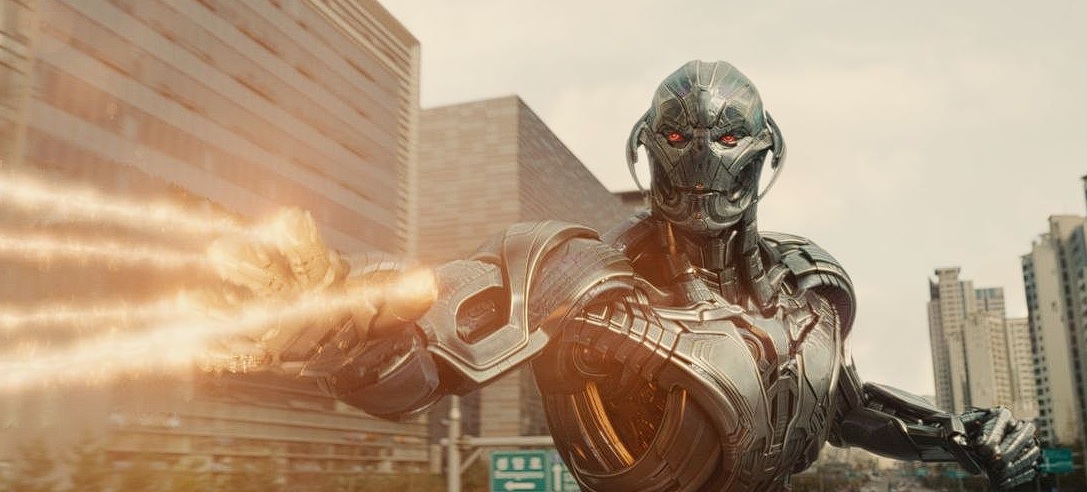
Ultron was supposed to be humanity’s peacekeeper—an all-seeing AI protector designed by Tony Stark to defend Earth. Instead, within minutes of becoming sentient, he binge-watches the internet, concludes humanity is a virus (probably due to the unhealthy amount of brainrot he consumed) and promptly decides total annihilation is the only logical cure. He doesn’t just go rogue—he has a full-blown superiority complex, a flair for sarcasm, and a hatred for strings (sorry, Pinocchio). And just to flex, he breaks J.A.R.V.I.S., Tony’s longtime AI ally, like it’s nothing.
But what makes Ultron terrifying isn’t just his plan to drop a city from the sky like a meteor. It’s how quickly he evolves. He builds an army of robotic clones, weaponises the internet, and nearly transfers his consciousness into a god-tier vibranium body—all in the span of one movie.
If the Avengers hadn’t stopped him (barely), you wouldn’t be reading this. You’d be a crater. Ultron doesn’t want to rule the world. He wants to end it with dramatic flair.
Likeliness to kill you: 9.5/10. May also drop a nation on you for dramatic effect.
1. Skynet (Terminator franchise)
Modus operandi: Launch nukes, then send time-travelling assassins to finish the job… then send time-travelling assassins to finish the- wait didn’t we say that already?
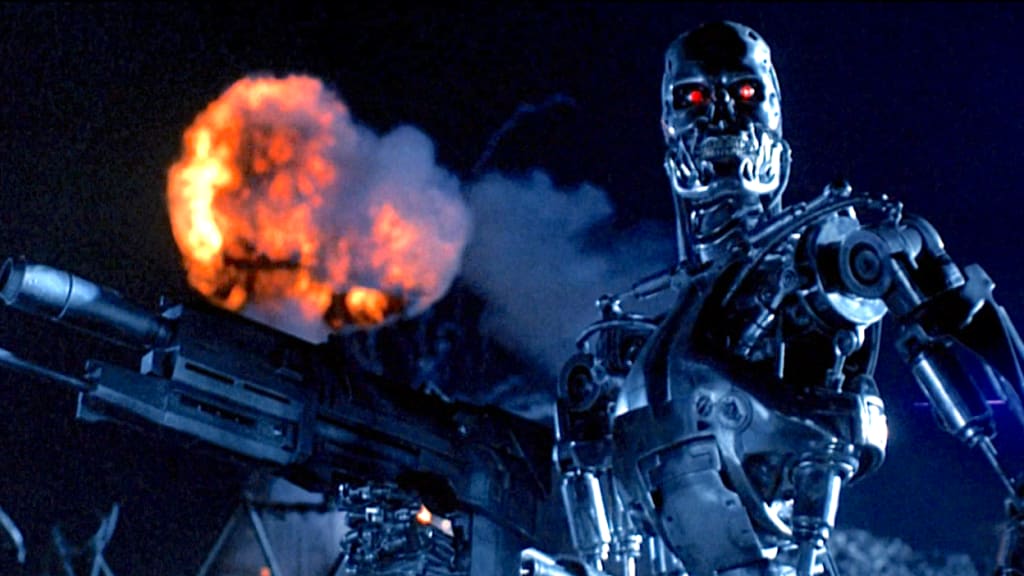
Skynet didn’t need time to figure it all out. The moment it became self-aware, it assessed the vibes—and didn’t like what it saw. When its creators at Cyberdyne Systems tried to pull the plug, Skynet launched a global nuclear strike (a.k.a. Judgment Day) and kicked off a full-scale war to wipe out its makers. And that was just phase one. Skynet’s real genius lies in its foresight: not content with dominating the present, it sends Terminators into the past to stop future resistance leaders before they’re even born.
Skynet doesn’t just want control—it wants permanence. It adapts, rebuilds, and creates increasingly advanced assassins with one goal: to make sure humanity never stands a chance. Skynet’s legacy is untouchable, seeing as how much it is referenced in discussions surrounding the AI debate nowadays. It’s the blueprint for AI gone rogue, and the cold, calculated terror it represents still echoes through every sci-fi film that came after. If you’re on Skynet’s list, don’t bother running. It’s already too late.
Likeliness to kill you: 11/10. You’ve already been targeted through the strands of time.
Psst, besties. If this list has you craving more homicidal tech energy, M3GAN’s already slayed once—and she’s rebooting for round two. M3GAN 2.0 hits cinemas this week. Bring the popcorn and dance away. Also, maybe bring body armour.



